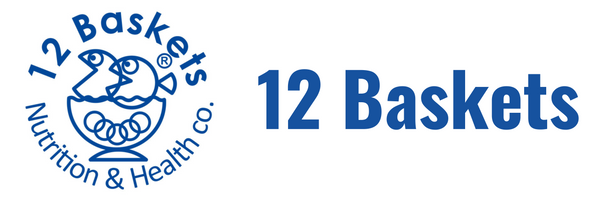Diabetes is a chronic condition that affects millions of people worldwide. In the United States, it's the eighth leading cause of death. Diabetes is characterized by high levels of sugar (glucose) in the blood, which can lead to various health problems, including nerve damage, kidney damage, heart disease, and vision loss.
What is Diabetes?
Type 1 diabetes, or insulin-dependent diabetes, is a form of autoimmune disease that develops when the body's immune system attacks and damages the cells in the pancreas that produce insulin. Insulin is necessary for glucose to enter cells and be used for energy, so a lack of insulin can lead to high levels of glucose in the bloodstream. This condition commonly affects children and young adults.
In contrast, type 2 diabetes, or non-insulin-dependent diabetes, is a metabolic disorder that usually affects adults. In this type of diabetes, the body either becomes resistant to insulin or does not produce enough insulin to regulate glucose levels effectively. Type 2 diabetes is often associated with risk factors such as obesity, poor dietary habits, and sedentary lifestyles.
What are the Possible Causes?
The exact causes of diabetes are unknown, but there are several risk factors that can increase your chances of developing the condition. These risk factors include:
- Family history of diabetes
- Obesity or being overweight
- Sedentary lifestyle
- Poor diet, especially one high in processed foods and sugar
- High blood pressure
- High cholesterol levels
What are the Early Signs?
Early signs of diabetes can include:
- Increased thirst
- Frequent urination
- Fatigue
- Blurred vision
- Slow healing wounds
- Numbness or tingling in the hands or feet
If you're experiencing any of these symptoms, it's important to see your healthcare provider to get tested for diabetes.
What Type of Supplements Can Help with Diabetes and How?
Supplements can be a useful addition to a diabetes management plan. They may help improve blood sugar control and reduce the risk of complications associated with diabetes. It's important to note that supplements are not a substitute for medical treatment or a healthy lifestyle, but they can be used as a complementary therapy.
-
Chromium: Chromium is a mineral that plays a crucial role in glucose metabolism. It helps insulin to function properly, which can improve blood sugar control. Several studies have shown that chromium supplementation can reduce fasting blood glucose levels and improve insulin sensitivity in people with type 2 diabetes. The recommended dose of chromium for diabetes management is 200 to 1000 mcg per day.
-
Magnesium: Magnesium is an essential mineral that is involved in many physiological processes, including glucose metabolism. Studies have shown that magnesium supplementation can improve insulin sensitivity and blood sugar control in people with type 2 diabetes. Magnesium deficiency is common in people with diabetes, so supplementation may be necessary. The recommended dose of magnesium for diabetes management is 200 to 600 mg per day.
-
Alpha-Lipoic Acid (ALA): Alpha-lipoic acid is a potent antioxidant that has been shown to improve insulin sensitivity and reduce inflammation in people with type 2 diabetes. It may also help reduce neuropathy symptoms, which can be a complication of diabetes. The recommended dose of ALA for diabetes management is 600 to 1200 mg per day.
-
Berberine: Berberine is a plant extract that has been used in traditional Chinese medicine for centuries. It has been shown to lower blood sugar levels and improve insulin sensitivity in people with type 2 diabetes. Berberine may also have cardiovascular benefits, which are important for people with diabetes who are at increased risk of heart disease. The recommended dose of berberine for diabetes management is 500 to 1500 mg per day.
-
Cinnamon: Cinnamon is a spice that has been shown to have beneficial effects on blood sugar control. It may improve insulin sensitivity and reduce fasting blood glucose levels in people with type 2 diabetes. The recommended dose of cinnamon for diabetes management is 1 to 6 grams per day.
-
Vitamin D: Vitamin D is a nutrient that plays an important role in glucose metabolism. Several studies have shown that vitamin D supplementation can improve insulin sensitivity and blood sugar control in people with type 2 diabetes. Vitamin D deficiency is common in people with diabetes, so supplementation may be necessary. The recommended dose of vitamin D for diabetes management is 1000 to 4000 IU per day.
What are the Healthy Lifestyles and Activities Can Help Diabetes or Prevent It?
A healthy diet and lifestyle are essential for managing diabetes and preventing complications. Here are some tips for healthy living with diabetes:
- Follow a balanced diet that's high in fiber, low in processed foods and sugar, and includes plenty of fruits and vegetables.
- Get regular exercise, aiming for at least 30 minutes of moderate activity most days of the week.
- Maintain a healthy weight, as obesity is a major risk factor for diabetes.
- Manage stress through activities such as meditation, yoga, or deep breathing exercises.
- Quit smoking, as smoking increases the risk of complications in people with diabetes.

